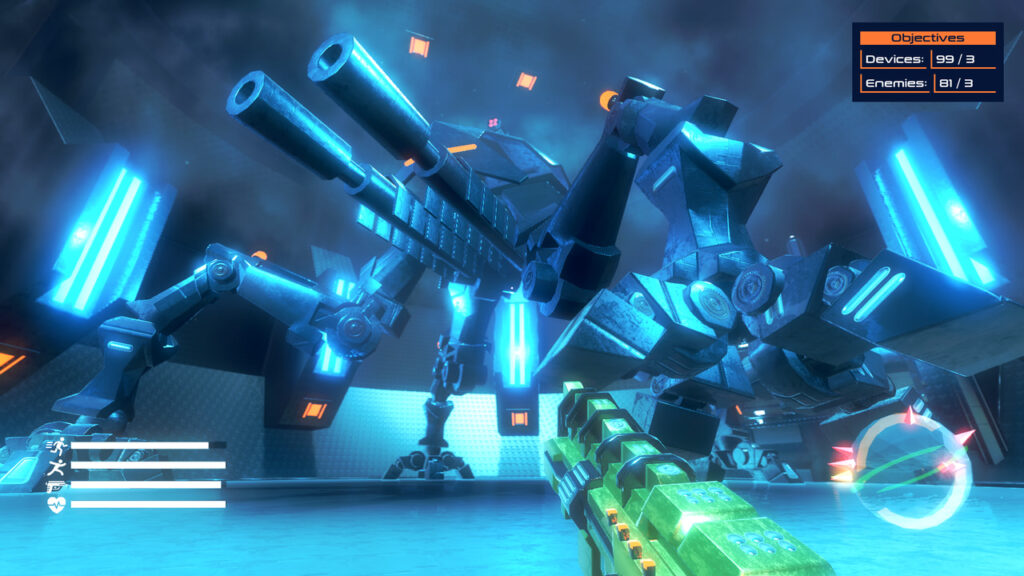Game development is a dynamic and thriving industry, with an ever-expanding array of platforms available to developers. Choosing the right platform is a crucial decision that can significantly impact the success of a game. But what is actually the best platform for game development?
In this article, we want to explore some of the best platforms for game development, considering factors such as accessibility, community support, and technology. Maybe, in the end, we get to a final verdict of what is the best platform for game development.

The best platform for game development
First, let’s discuss what a good platform for game development must have to be considered a contender for the title of “best one”.
- Robust graphics engine: it is pivotal that the best platform has support for advanced graphics rendering and effects. Compatibility with popular graphics APIs, like DirectX, OpenGL, and Vulkan is also extremely important.
- Cross-platform support: the ability to export games to multiple platforms is a must, as well as support for common operating systems in for PC gamers.
- Integrated development environment (IDE): nowadays, it is barely impossible to work on the production of any game without a user-friendly and feature-rich IDE for coding, debugging, and testing. Code completion, syntax highlighting, and other productivity tools are also very important for a good IDE.
- Performance optimization tools: profiling tools for identifying and optimizing performance bottlenecks and support for efficient resource management are also characteristics of any platform that wants to be considered the best.
- Version control integration: integration with version control systems, like Git, to manage source code and collaborate with a team is the final big piece of the puzzle.
Now that we know the criteria with which we are going to evaluate the platforms, we can start our list with platforms and assess all of them.
Unity
Anyone with even a little experience in the gaming field knows that Unity is perhaps the strongest contender for the best platform for game development.
Unity stands as a dominant force within the dynamic realm of game development, having solidified its reputation as a powerhouse due to its versatile and user-friendly environment.
Its prowess extends to both 2D and 3D game development, catering to the needs of beginners taking their initial steps into the world of game creation, as well as seasoned developers looking for a robust and efficient platform.
One of Unity’s key strengths lies in its extensive Asset Store, a treasure trove of pre-built assets that significantly streamline and elevate the development process.
The store offers a diverse range of ready-made components, including characters, animations, textures, and sound effects, empowering developers to augment their projects with high-quality resources.
This not only expedites development but also ensures a level of polish and professionalism in the final product that might otherwise require significant time and resources.
Unity’s commitment to accessibility is also evident in its cross-platform compatibility. Developers can seamlessly deploy their creations on various platforms, ranging from mobile devices and consoles to desktop computers.
This versatility not only maximizes the potential audience for a game but also facilitates the creation of experiences that can be enjoyed across different devices. This adaptability is particularly crucial in an era where the gaming landscape continues to evolve, with players engaging on an ever-expanding array of platforms.

Unity’s user-friendly interface is another noteworthy feature. The platform provides an intuitive environment that facilitates rapid prototyping and experimentation, allowing developers to iterate on their ideas efficiently.
This accessibility is crucial for newcomers who might be daunted by the complexities of game development, as it enables them to grasp essential concepts without feeling overwhelmed.
Unity’s support for a wide range of programming languages and frameworks enhances its appeal to a diverse community of developers. Whether one prefers C#, JavaScript, or Boo, Unity accommodates various coding preferences, making it a versatile tool that can be tailored to individual workflows.
It also provides several tools and features to help developers optimize the performance of their games and applications – with a powerful profiler, frame debugger, and various batching techniques – and supports integration with version control systems to help developers manage and track changes to their projects.
Robust graphics engine: 5/5
Cross-platform support: 5/5
Integrated development environment (IDE): 5/5
Performance optimization tools: 5/5
Version control integration: 5/5
Unreal Engine
Another strong option for the title of the best platform for game development is the famous Unreal Engine.
Developed by Epic Games with cutting-edge technology, the Unreal Engine stands as a pinnacle in the realm of game development, celebrated for its exceptional graphics and robust capabilities.
This game development engine has carved its niche by consistently delivering visually stunning and immersive experiences, making it the go-to choice for developers aiming to create high-end, realistic games.
One of the standout features of Unreal Engine is its unparalleled graphical prowess. The engine boasts state-of-the-art rendering capabilities that bring virtual worlds to life with breathtaking realism.
The advanced lighting and shading systems, coupled with dynamic particle effects, contribute to the creation of environments that captivate players and blur the lines between the digital and the tangible. This emphasis on graphical fidelity has made Unreal Engine a favorite for AAA game developers who prioritize delivering visually impressive experiences!

Unreal Engine is also renowned for its comprehensive suite of tools and features that empower developers to unleash their creative vision.
From the Blueprint visual scripting system, which simplifies the development process for those less versed in traditional coding, to the robust C++ programming support for seasoned developers, Unreal Engine accommodates a diverse range of skill sets.
Despite its reputation for being more challenging to learn compared to other engines like Unity, Unreal Engine’s steeper learning curve is offset by the immense power it puts in the hands of developers.
The engine’s performance capabilities are second to none, enabling the creation of expansive open-world environments, intricate character animations, and complex simulations. This makes it particularly well-suited for ambitious projects that demand a high level of detail and sophistication.
Robust graphics engine: 5/5
Cross-platform support: 5/5
Integrated development environment (IDE): 5/5
Performance optimization tools: 5/5
Version control integration: 5/5
Godot
Trailing just behind the two previous giants in the best platform for game development run, is Godot, an open-source game engine that has gained popularity for its simplicity and ease of use. One of the standout features of Godot is its visual scripting language, which sets it apart from many other game engines.
This visual scripting language simplifies the development process, enabling even those with limited programming experience to create complex game mechanics and interactive elements. This accessibility makes Godot an ideal choice for developers of varying skill levels, from beginners to seasoned professionals.
The open-source nature of Godot fosters a collaborative and community-driven environment. Developers worldwide actively contribute to the engine’s improvement, ensuring a constant stream of updates, bug fixes, and new features.

Godot’s commitment to openness extends beyond its codebase. The engine allows developers to create games across a multitude of platforms without the financial constraints associated with some proprietary engines.
This is particularly advantageous for indie developers who may have limited resources but still aspire to produce high-quality games for a diverse audience.
With Godot, the financial barrier to entry is significantly reduced, empowering indie developers to focus on their creative endeavors without compromising on the quality of their projects.
In addition to its cross-platform capabilities, Godot supports an extensive range of export options, enabling developers to deploy their games on various operating systems, including Windows, macOS, Linux, Android, iOS, and HTML5.
This versatility ensures that games created with Godot can reach a broad audience, further solidifying its appeal for developers seeking to maximize the potential reach of their projects.
Godot doesn’t offer the graphic power that Unity or the Unreal Engine does, but it is a much more democratic choice for its open source and easy learning curve.
Robust graphics engine: 3/5
Cross-platform support: 5/5
Integrated development environment (IDE): 3/5
Performance optimization tools: 2/5
Version control integration: 4/5
CryEngine
Nowadays, an often forgotten platform, but that made a lot of success back in 2007 when developed for the Crysis series, the CryEngine has evolved into a versatile engine suitable for a wide range of games.
It stands out for its exceptional capabilities in rendering high-quality graphics and crafting hyper-realistic environments and can be a contender for the best platform for game development. The engine employs advanced rendering techniques, including real-time global illumination and detailed texture mapping, to bring game worlds to life with unparalleled visual fidelity.
This emphasis on graphical excellence has not only solidified CryEngine’s place in the industry but also made it an attractive choice for developers aiming to deliver immersive and visually captivating gaming experiences.

Today, CryEngine has positioned itself as a frontrunner in the realm of virtual reality (VR) development. With native support for VR technologies, developers can harness the engine’s power to craft compelling and immersive virtual reality experiences.
This capability caters to the growing demand for VR content and places CryEngine at the forefront of the technological wave driving the future of gaming.
The engine’s VR support extends beyond mere compatibility, incorporating features that optimize performance and enhance user experiences in virtual environments. This makes CryEngine an ideal choice for developers seeking to create not only visually stunning but also seamlessly immersive VR content.
However, this focus on VR content has made games developed with CryEngine difficult to distribute to the big public, as well as increasing the costs used in the development phase.
Robust graphics engine: 5/5
Cross-platform support: 2/5
Integrated development environment (IDE): 4/5
Performance optimization tools: 4/5
Version control integration: 4/5
GameMaker Studio
Finally, our last contender for the position of the best platform for game development is the GameMaker Studio.
GameMaker Studio is a versatile game development platform renowned for its accessibility, catering to a wide spectrum of developers, from novices taking their first steps into game creation to seasoned professionals seeking a streamlined yet powerful toolset.
This robust software strikes a delicate balance between user-friendly simplicity and advanced capabilities, making it an ideal choice for both beginners and experienced developers alike.
At its core, GameMaker Studio is designed to facilitate the creation of 2D games, excelling in simplicity without compromising functionality. The platform employs a drag-and-drop system, allowing those who are more visually oriented to craft games without delving into intricate lines of code.

For developers seeking more granular control and flexibility, GameMaker Studio also incorporates a scripting language.
This scripting functionality opens the door to a vast array of customization options, empowering experienced developers to implement intricate game mechanics, sophisticated AI systems, and other advanced features.
This dual approach, combining visual elements with a powerful scripting language, ensures that GameMaker Studio remains an attractive choice for a diverse audience with varying levels of expertise.
Notably, GameMaker Studio finds a sweet spot within the indie game development scene. Its emphasis on 2D game development, combined with a straightforward interface, makes it particularly well-suited for indie developers working on projects with simpler graphics and mechanics.
The platform’s efficiency in prototyping and iteration facilitates a faster development cycle, allowing small teams or solo developers to bring their creative visions to life with minimal barriers.
Robust graphics engine: 3/5
Cross-platform support: 4/5
Integrated development environment (IDE): 4/5
Performance optimization tools: 4/5
Version control integration: 4/5
So what is the best platform for game development?

Well, that will greatly depend on what exactly is your project.
While Unity and Unreal Engine are undeniably the most complete ones, offering state-of-the-art tools and capable of being used in basically any gaming project imaginable, they can be quite demanding, both in how much they cost to their relatively steep learning curve.
Godot and GameMaker Studio would be much more affordable and approachable options – especially for indie development – with Godot being even more accessible, on the account of being free.
But if you want to embark on the current trend of VR development, CryEngine is the right choice for you. It has a focus on that kind of development and costs less than Unity and Unreal Engine.
We here at Main Leaf primarily focus on Unity and Unreal Engine development, and we can safely vouch for the quality of these platforms. However, during our 11 years of experience, we have also dabbled with the other aforementioned options, given the fact they are good for specific purposes.
So it all comes down to exactly what you require from a platform. In the end, the best platform for game development is the one that fulfills the needs of your project!
If you like this article, you can always visit our blog, where we discuss everything related to the world of game development, or contact us for a quote on your dream game. We’ll answer within 24 hours, so make sure to describe to us where your project is headed from the get-go!

